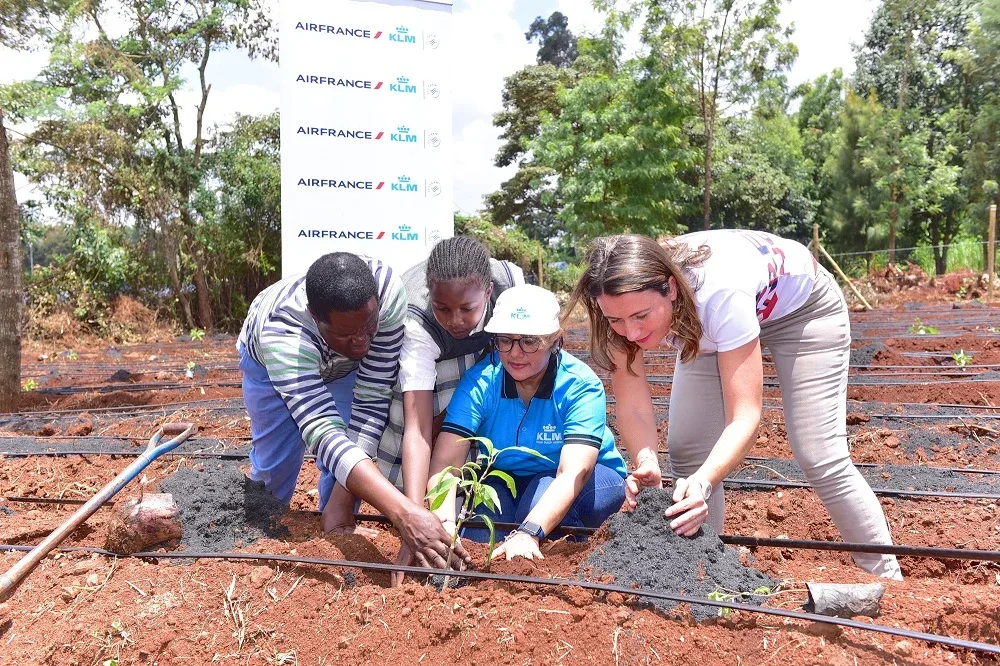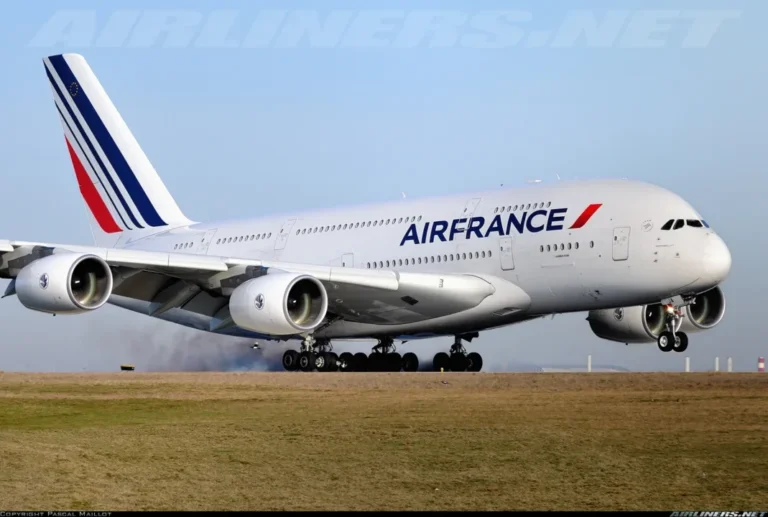Over 700 students and teachers at Thogoto Model Primary School in Kenya’s Kiambu County will benefit from fresh vegetables and fruits plucked from their new kitchen garden and orchard. The orchard was established with the support of Air France-KLM Airlines.
The initiative is part of Air France-KLM’s social enterprise, which aims at creating a platform for students to gain knowledge on food production and environmental conservation, while providing them with access to highly nutritious food. The airline group aims to empower the school to feed its students, by supporting it in establishing its own food production hub and forest.
In the project, Air France-KLM partnered with Miti Alliance, a social enterprise that works to foster environmental education. The two organizations have provided the tools and other resources needed to ensure a smooth take-off for the project. The school will, henceforth, assume full responsibility of maintaining the garden and integrating it into its curriculum for long-term sustainability and self-reliance in the supply of ingredients for school meals.

School feeding programs are instrumental in alleviating Kenya’s malnutrition challenge, which has left nearly 18% of children under five stunted[1], according to Kenya’s Ministry of Health. With school-age children and adolescents making up nearly 36% of the country’s population, and with most spending nearly 75% of the year in school, where they access half of their daily meals[2], it is important that school menus are built on safe and nutritious ingredients.
“School-age children make the vast majority of our population and it is upon us to ensure that they are well nourished. Through this project, we went a step further to ensure that our target students regularly get highly-nutritious vegetables and fruits for their meals, while also learning how to produce their own food,” said Hildabeta Amiani, the Air France-KLM Kenya Country Sales Manager.
Kitchen gardening has been shown by various researchers to contribute to the establishment of resilience to the effects of climate change. By providing accessible food products for communities, kitchen gardens, like the one established at Thogoto Model Primary School, ensure that beneficiaries are not entirely dependent on external sources for their replenishment.
“Sometimes climate shocks end up disrupting traditional food production areas, which ultimately leads to supply chain breakages. Under such situations, school kitchen gardens come in to bridge the emerging gaps, while training students to pursue self-reliance,” said Michael Waiyaki, the Founder and CEO at Miti Alliance.
Leah Maina, the headteacher at Thogoto Model Primary School added: “As educators, it is our desire that the students leaving our hands are wholesome individuals, who can in addition to taking care of themselves, can transform their communities. This project will definitely enhance their capacity to grow their own food and contribute to the restoration of deforested areas in their homes.”
Air France-KLM is currently implementing a climate action plan that, among other objectives, considers the airline’s impact on food security as well as air, soil and water resources, and waste management. This action plan informs its sustainability initiatives, and plays an instrumental role in defining some of its social impact projects, including the Thogoto School initiative. Its partnership with Miti Alliance will help to counter deforestation, which affects 50,000 hectares across Kenya every year leading to KSh1.9 billion in losses.
Meanwhile, across its operations, Air France-KLM strives to minimise food waste, by using new prediction technologies to establish the number of passengers on its flights and their consumption patterns. This ensures that only the required food packages are brought on board, ultimately conserving vital food resources, while lowering the emissions generated in food waste management.

